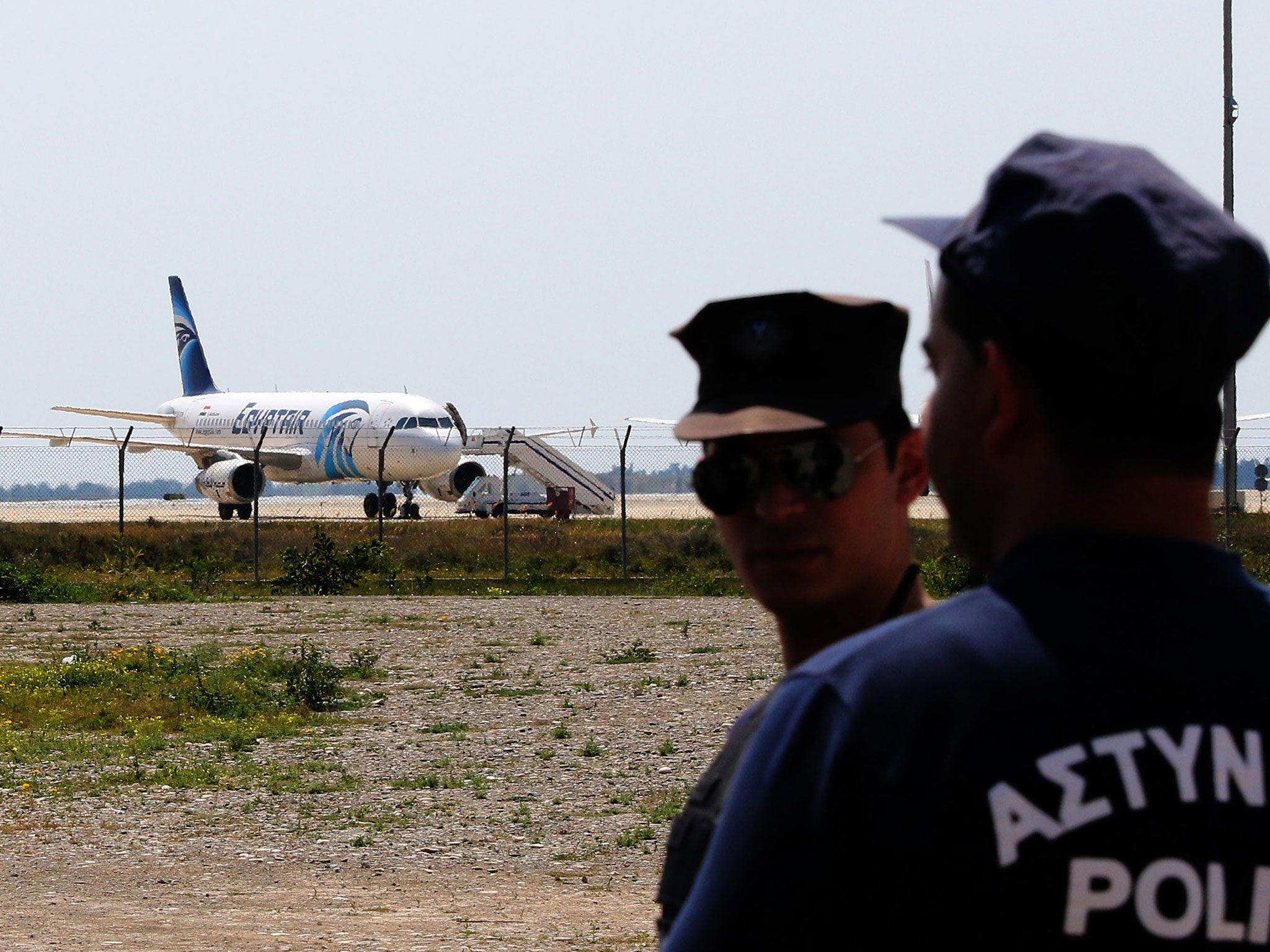After the EgyptAir crisis in Cyprus, how can a plane be hijacked in the 21st Century?
Simon Calder explains the decisions behind landing a plane at the demand of an unruly passenger

Your support helps us to tell the story
From reproductive rights to climate change to Big Tech, The Independent is on the ground when the story is developing. Whether it's investigating the financials of Elon Musk's pro-Trump PAC or producing our latest documentary, 'The A Word', which shines a light on the American women fighting for reproductive rights, we know how important it is to parse out the facts from the messaging.
At such a critical moment in US history, we need reporters on the ground. Your donation allows us to keep sending journalists to speak to both sides of the story.
The Independent is trusted by Americans across the entire political spectrum. And unlike many other quality news outlets, we choose not to lock Americans out of our reporting and analysis with paywalls. We believe quality journalism should be available to everyone, paid for by those who can afford it.
Your support makes all the difference.Somewhere in the world, almost every day,a foolish, drunk or angry passenger will claim to have a weapon on board a plane. In many cases she or (usually) he will not be believed, and can be expected a welcoming committee of police upon arrival.
If there is a degree of plausibility, then the captain may decide to divert to the nearest airport – normally with the same result, but rather more disruption.
For someone with a convincing story but no actual weapon effectively to take control of an aircraft on a domestic flight and direct it to land in another country is, thankfully, rare. But the incident aboard flight 181 from Alexandria to Cairo says much about the tension prevailing in Egypt and beyond.
When the EgyptAir pilots were alerted by cabin crew to the threat, they will have had in mind the Metrojet holiday flight from Sharm el-Sheikh to St Petersburg on 31 October. An Airbus crashed in the Sinai desert with the loss of all 224 people on board. It is believed to have been downed by a bomb planted while the plane was on the ground at the resort’s airport.
A few days later, the Foreign Office banned airlines from flying in and out of Sharm el-Sheikh until airport security was improved – and mounted an unprecedented series of rescue flights on which passengers were banned from taking luggage, which was flown home separately. Egypt’s prime holiday airport is still off limits to UK airlines.
Every EgyptAir captain is acutely aware the apparent circumstances of the Metrojet tragedy. If the price of keeping passengers and crew safe appears merely to be a short diversion to a nearby island, it is the only rational course of action. But to the wider world, it adds to the sense that the Egyptian authorities are not fully in control of security – especially in that most sensitive area, the airport.
While I have flown many times on EgyptAir and would not hesitate to do so again tomorrow, I sympathise with prospective travellers who feel uneasy about the very idea of flying from an Egyptian airport. And I fear some other misguided souls will be encouraged by the apparent "success" of a hijacking using a 21st-century variant on a toy gun. Even if your travel plans do not include Egypt, be prepared: a well-publicised hijack triggers copy-cat incidents.
Join our commenting forum
Join thought-provoking conversations, follow other Independent readers and see their replies
Comments